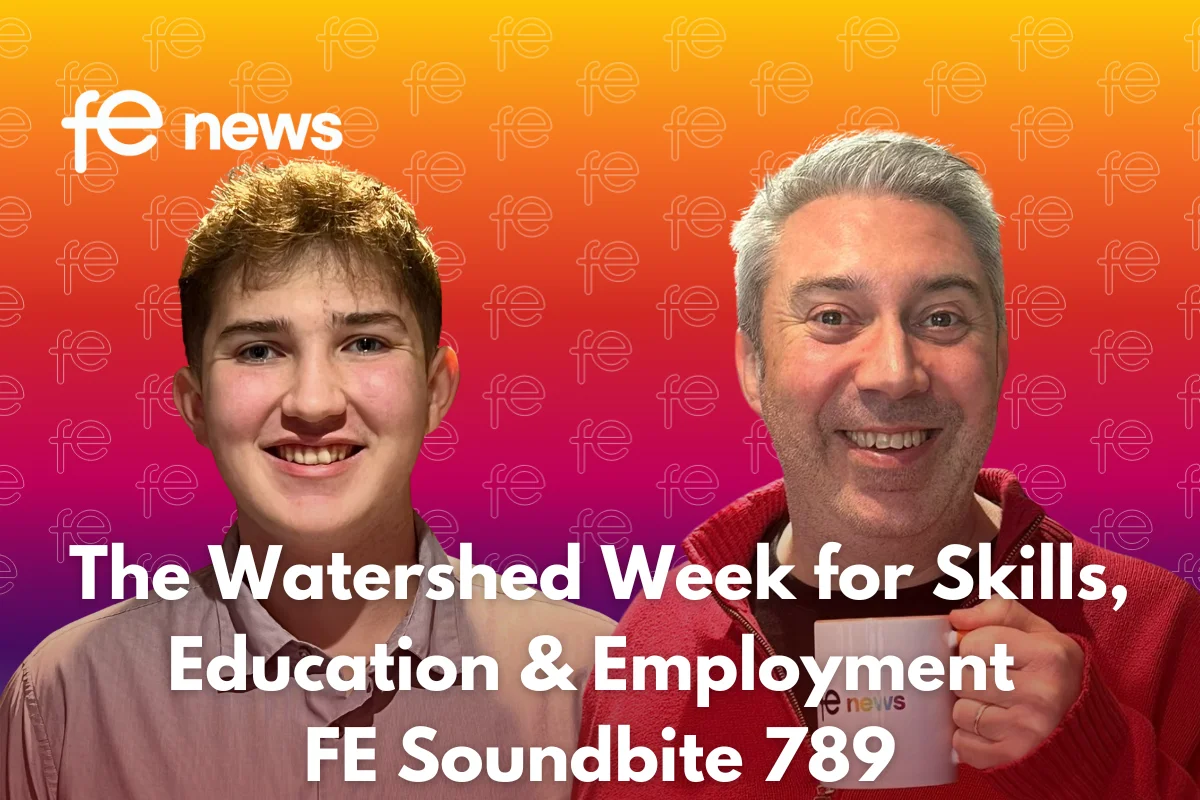Anne Longfield’s final speech as Children’s Commissioner challenges the Prime Minister to show he is serious about putting children at the heart of ‘building back better’

Children’s Commissioner for England calls for a new “Covid Covenant” of education and wellbeing support in every community to help children and young people recover from the pandemic
Her time as Children’s Commissioner has taught her about why government often fails to help the most vulnerable children.
Government silos and ‘institutional bias against children and families’ in the Treasury consistently means resources are not where they would make most impact.
Anne Longfield, Children’s Commissioner for England, will today (Wednesday) deliver her final speech in post with a challenge to the Prime Minister to show he is serious about children by putting them at the heart of his post-Covid plans. Her speech will warn that the Prime Minister’s promise to ‘level up’ will be ‘just a slogan unless it focuses on children’.
In the speech, Anne Longfield reflects on her six years as Children’s Commissioner, and looks ahead to the challenges to childhood brought about by the pandemic.
As part of Anne Longfield’s final speech this morning as Children’s Commissioner, Robert Halfon MP will set out his vision for an ‘Educational Route Map out of Covid-19’.
Robert Halfon will set out how the Government should best support children with catch-up, not just academically, but also in terms of their mental and physical health which has suffered greatly under lockdown.
She will begin:
“As Children’s Commissioner, I’ve always said I want to be ambitious for all children – but especially vulnerable children. I’ve taken on the naysayers who have told me “some children can’t be helped” or, “we just don’t have the evidence to know what to do”. Neither is true. Every child has the right to a good education, to be fed, clothed and kept safe, and ultimately to succeed in life. All these things are possible … The terrible thing is, one year into the pandemic we know most of their lives will have got worse.”
The Children’s Commissioner will set out the extensive evidence showing the harm that time out of the classroom has caused to millions of children:
“It’s impossible to overstate how damaging the last year has been for many children – particularly those who were already disadvantaged. Covid is the biggest challenge to our society in seventy years. But also an opportunity to reflect and rebuild … ‘Building back better’ must mean rethinking our priorities and the way we care for children. We must be honest about the scale of the challenge and face the tough questions about the gaps that we know exist. For example, how many children are in families that are struggling to support them; how many are starting school so far behind they’ll never catch up; how many children with mental health needs or special education needs aren’t getting the help they should be?”
Anne Longfield will also reflect on how many in Whitehall view children:
“I have been shocked to discover how many officials have never met any of the children they are responsible for. So many seem to view them as remote concepts or data points on an annual return. This is how children fall through the gaps – because too often the people in charge of the systems they need simply don’t see them and try to understand their world.”
The Children’s Commissioner will call it a ‘national scandal’ that the system seems to accept that after 14 years of compulsory education and training almost a fifth of children leave without basic qualifications:
“That is abysmal … I don’t know what’s more shocking: that these things happen, or that they’re hardly recognised. No one can honestly believe that 20% of children are incapable of achieving basic qualifications. It should be a national scandal.”
Referring to new analysis published alongside her speech, Anne Longfield will highlight how poverty impacts on children’s educational attainment:
“A child who is known to social services is three times more likely to be growing up in poverty, and twice as likely to have special educational needs. A child growing up in poverty is 88% more likely to have a special educational need than a child who is more well-off. There is a large group of children who face a combination of challenges including an unstable home environment, poverty, social and emotional health problems, communication difficulties, or caring for family members. Our analysis reveals that three-quarters of the children who don’t achieve the basic qualifications had at least one of these issues. But it’s when these issues combine they do the most damage to a child’s prospects.”
The Children’s Commissioner questions why the basic issues holding many children back are not being tackled by the Government:
“It’s not that we can’t do it. It’s not that we “don’t know what works”. It’s that we don’t set out to do it. The challenge I want to present to Government and all political parties today is threefold. Are you serious about children, and their life chances? Will you follow this through not just this month, but this year and next? Do you understand the additional harm that has been done to children during the pandemic? Are you serious about ‘building back better’ and ‘levelling up’? And will you put those children who were already disadvantaged at the centre of it? This is not just about missing a few chapters in a textbook.”
Anne Longfield praises President Biden for proposing a huge package of tax credits and benefits, aimed squarely at families with children, contrasting it with uncertainty about the uplift in Universal Credit:
“This is projected to halve child poverty in just a year. The Biden administration knows that children are the heart of our future economic success. Yet in the UK, we’re on track to have the highest levels of child poverty since records began in the 1960s. Two weeks ago the Prime Minister said educational catch-up was the key focus of the entire Government – yet we still don’t know if next month he is planning to take the Universal Credit uplift away from millions of families. The two positions aren’t compatible. If the Government is really focused on educational catch-up, it wouldn’t even countenance pushing 800,000 children into the type of devastating poverty which can have a much bigger impact on their life chances than the school they go to or the catch-up tuition they get. This is the basic flaw in how Government functions: different parts of the system know different areas of these children’s lives, but nobody connects the dots.”
She will continue:
“The Prime Minister’s promise to “level up” is just a slogan unless it focuses on children. The Prime Minister – indeed all political parties – should set a clear goal that’s about children’s lives, not the institutions they attend. Instead of talking about increasing the number of children going to a good or outstanding school, I want the government to commit to making children better off. I want them to say within five years we will reduce the number of children starting school with developmental issues by 80%. Or within five years we will reduce the number of children leaving education without basic qualifications by 60%. Otherwise, we will repeat the mistakes of the past ten years, when governments have focussed on school improvement targets without noticing that the outcomes for children attending these schools are, overall, getting worse.”
She will talk about her frustration that Whitehall is failing to tackle many of the problems facing millions of vulnerable children:
“I’m fed up with hearing “we don’t know” from people whose job it is to know. Politicians on all sides must raise their level of ambition. I believe the public would support them if they did … In Whitehall, children are pupils, or a child in care, or a patient on a mental health waiting list, or the recipient of an EHC plan. They have only one issue that concerns the departmental silo. The process comes before the child. What Government seems unable to fathom is that children can be all of these things simultaneously, and that it is because they are still a child on a mental health waiting list that they have now become a child excluded from school, and will soon become a child in care.”
Anne Longfield will criticise Treasury ‘siloed thinking’:
“Children and families are the recipient of multiple services. The same family can be hit by cuts to early help, children’s centres, benefits and health visiting. But the Treasury has consistently refused to undertake analysis of the cumulative impact of multiple spending decisions on families. When I ask the Treasury to explain how they connect these dots, I get lost in a world of bureaucratic jargon … The IFS has estimated that the long-term cost to the economy of learning loss caused by the pandemic will be £350 billion. However, the Treasury has committed just £1 billion to in-school catch-up and £200m in wider support, while giving tens of billions to other sectors of the economy. What all this shows is an institutional bias against children. Whatever the data, the outcomes, the successful interventions – the system still says no.”
The Children’s Commissioner talks about how many in government are unwilling to face up to the scale of vulnerable children:
“I have to force officials and ministers to the table, to watch them sit through a presentation, maybe ask a question, and then vacantly walk away. I do not believe this truly reflects the extent of Government and the public’s commitment to helping children succeed.”
Anne Longfield calls for the desperate need to build back better for children:
“We should launch a year of opportunity once the virus has been suppressed. Enabling every child, from whatever background, not just to learn in the classroom, but also to develop their own interests at weekends and in the holidays. Finding joy in finding out, with confidence and resilience by forging their own path. I want to see the now-empty school rooms, sports halls, and swimming pools being used at evenings, weekends and holidays to help all children catch up with confidence. They can get a meal, a break from home and more time to play with friends. Libraries open, art galleries and theatres too – free for families. Music workshops, drama, digital clubs to spark interest and grow talent. In every area of the country, but especially our left-behind areas.”
She also urges the Prime Minister to get passionate about building back better for children:
“I want to see the Prime Minister getting passionate about making sure that we don’t define children by what’s happened during this year, but we define ourselves by what we offer to them. It will take political will and funding – an opportunity fund – measured in billions, but it would be worth every penny. It should be led by the Prime Minister. A national effort to reopen our institutions and country and reboot childhood. To celebrate everything that is good about growing up in this country and begin to make good where things are not. With backing from all political parties and unions. A “Covid Covenant” from us to our children that takes children out of boxes marked ‘problem’ and see them as the opportunities they are.”
Anne Longfield concludes with a final message to politicians:
“It’s an indescribable privilege to do a job like this, and I won’t stop fighting for them once I leave this post in a couple of weeks … My parting plea to you is this: please don’t forget about vulnerable children … these are your children now. You have a chance to put them centre stage. When you do build back better, make sure you do it around them.”
Chair of the Education Select Committee Robert Halfon MP sets out his vision for an ‘Educational Route Map out of Covid-19’ as part of Children’s Commissioner’s final speech
Robert Halfon’s speech will call for “radical” reforms:
- 40% of the disadvantage gap at age 16 has already emerged by the time children start primary school.
- Family hubs offer traditional early years help, but integrate a whole lot more: new parent services; childcare and early education; relationship support; mental health counselling; and employment and training programmes. They provide cradle-to-career support for the whole family unit.
2. Extending the school day
- This would build on the Government’s National Tutoring Programme, which Rob campaigned for.
- In 2017, DCMS found that underachieving young people who participated in extra-curricular activities linked to sport increased their numeracy skills, on average, by 29% above those who did not participate in sport.
- Children and young people who participate in school sports clubs are 20% less likely to suffer from a mental health disorder.
- And extending the school day could bring down youth crime – half of under-16 knife crime takes place between 4-6pm.
3. Reforming the pupil premium
- The current formula is far too clunky. Schools get funding for any pupil who has been eligible for free school meals at some in the last six years. This should be changed so that the premium is more heavily weighted towards children who are long-term disadvantaged.
4. Redirecting money from the Government’s “Opportunity Areas” programme and investing in teacher recruitment.
- £96 million is spent on OAs, even though “their impact has been far from conclusive”.
- This money would be better spent on boosting teaching quality in our most disadvantaged areas.
- This would mean incentivising highly commended initial teacher training providers to work with disadvantaged schools, offering teaching bursaries, retention payments and salary bonuses to good teachers in challenging areas, to avoid flight of local talent.
A Government spokesperson said:
“Protecting vulnerable children has been at the heart of our response to the pandemic, driven by our commitment to level up opportunities and outcomes.
“That’s why we have enabled the most vulnerable children to continue attending school in person, while providing laptops, devices and data packages to those learning at home and ensuring the most disadvantaged children are fed and warm. We have also driven forward crucial reform in adoption, in the care system, in post-16 education and in mental health support – and our long-term catch up plans and investment of over £1 billion will ensure we make up for lost time in education over the course of this Parliament.
“Anne Longfield has been a tireless advocate for children, and we’re grateful for her dedication and her challenge on areas where we can continue raising the bar for the most vulnerable.”
A Government spokesperson also provided the following background information:
On Treasury ‘bias’: Investment for vulnerable children and families has been prioritised across government, and it’s misleading to suggest there is any kind of ‘bias.’ At the last two Spending Reviews the Treasury committed £400m to the Shared Outcomes Fund for cross-cutting projects, including funding for projects aimed at improving services for children and young people. Additional investments include providing Local Government with access to over £1 billion of spending for social care through £300 million of new social care grants, over £3 billion to help manage the impact of COVID-19 across local government services and in children’s social care, and £165 million through the Troubled Families programme, providing intensive support to families facing multiple interconnected problems.
On ‘the Whitehall view’: Ministers and officials across Whitehall departments have a firm commitment to protecting the best interests of children and understanding their need. Civil servants routinely meet with and engage in many different ways with those impacted by their policies and services, and many have their own personal, lived experience of the services we run, whether as foster parents, apprentices, school governors or as care leavers. Additionally, Children and Families Minister Vicky Ford has attended several virtual visits and roundtables during the pandemic to hear the voice of children and young people, particularly those with Special Education Needs and Disabilities, or those attending special schools.
On social care and vulnerable children: Last month the Education Secretary launched the Government’s independent review of children’s social care, to provide important information to help address major challenges to radically reform the system, improving the lives of England’s most vulnerable children so they realise the benefits of a stable, loving home. Our cross-government SEND review is looking at ways to make sure that children and young people with SEND receive the highest quality support so they can thrive as they prepare for adulthood. Funding support for the sector includes providing £1.6 million to expand and promote the NSPCC’s helpline, offering advice and support on how to raise concerns about children at risk, and investing over £11 million to the See, Hear Respond programme, delivered by Barnardo’s and a consortium of national and local organisations to support vulnerable children and young people whose usual support networks have been impacted by the pandemic and restrictions.
On remote education: We are providing 1.3m laptops and tablets to the most disadvantaged children across the country, with more than one million laptops and tablets having now been delivered – part of a £400 million government investment that will support schools and young people for years to come. It means schools are now receiving top-ups to their original device deliveries, with those schools with the highest proportion of disadvantaged pupils being prioritised to receive the next devices first.
On catch-up: We will invest a further £300 million in tutoring programmes, building on our £1 billion Covid Catch Up Fund. This includes a £650 million catch up premium for this academic year to help schools support all pupils and a £350 million National Tutoring Programme for disadvantaged students. We have just appointed Sir Kevan Collins to the role of Education Recovery Commissioner, to specifically oversee this issue. We will come forward with further details shortly. Throughout the pandemic, getting children back in schools has remained the governments priority.
On skills at age 16: In the 2018/19 academic year, 94% of pupils had a sustained education, apprenticeship or employment destination in the year after completing key stage 4, the same as reported in 2017/18. Consistent with previous years, the majority of pupils continued in education (87%), 4% went into a sustained apprenticeship and 3% were in sustained employment: https://explore-education-statistics.service.gov.uk/find-statistics/key-stage-4-destination-measures
On mental health support: We are prioritising specialist children and young people’s mental health services and are providing £1.4 billion between 2015-21. NHS mental health services have remained open throughout the pandemic and services have deployed digital tools to connect with children and young people and provide ongoing support, and we have provided a total of £10.2 million to support mental health charities. Our £8 million Wellbeing for Education Return programme is funding expert advisers and training on mental health to help schools respond to the emotional impact of the pandemic on students and staff. The programme has developed a swathe of online resources and webinars, to offer accessible, practical, targeted support for those who don’t have access to locally adapted training. The Prime Minister and Education Secretary have recently appointed Dr. Alex George as Youth Mental Health Ambassador, to build on our support for young people with their wellbeing as they return to school, college and university after this difficult year. Dr Alex will be working closely with the Department for Education and will be joining Universities Minister Michelle Donelan and Children and Families Minister Vicky Ford in the new Mental Health Action Group.
On vulnerable families: We have spent over £280 billion this year to protect people’s jobs and livelihoods through one of the most generous and comprehensive packages of support in the world, helping to provide businesses and individuals with certainty over the winter months. We have extended our self-employed and furlough schemes through to April so that people have certainty help is in place.
On welfare support: We have targeted welfare support to those most in need by raising the living wage, spending hundreds of billions to safeguard jobs, boosting welfare support by billions and introducing the £170m Covid Winter Grant Scheme, to help children and families stay warm and well-fed during the coldest months, including through February half-term.











Responses